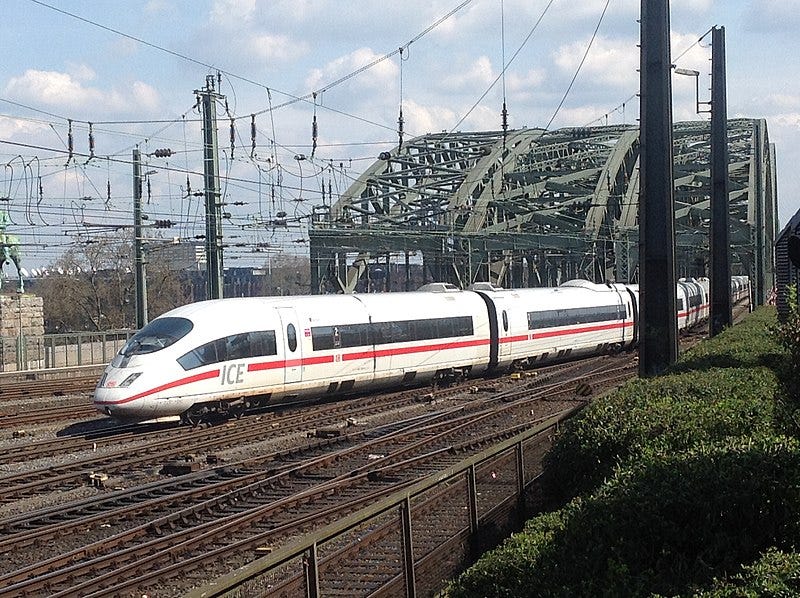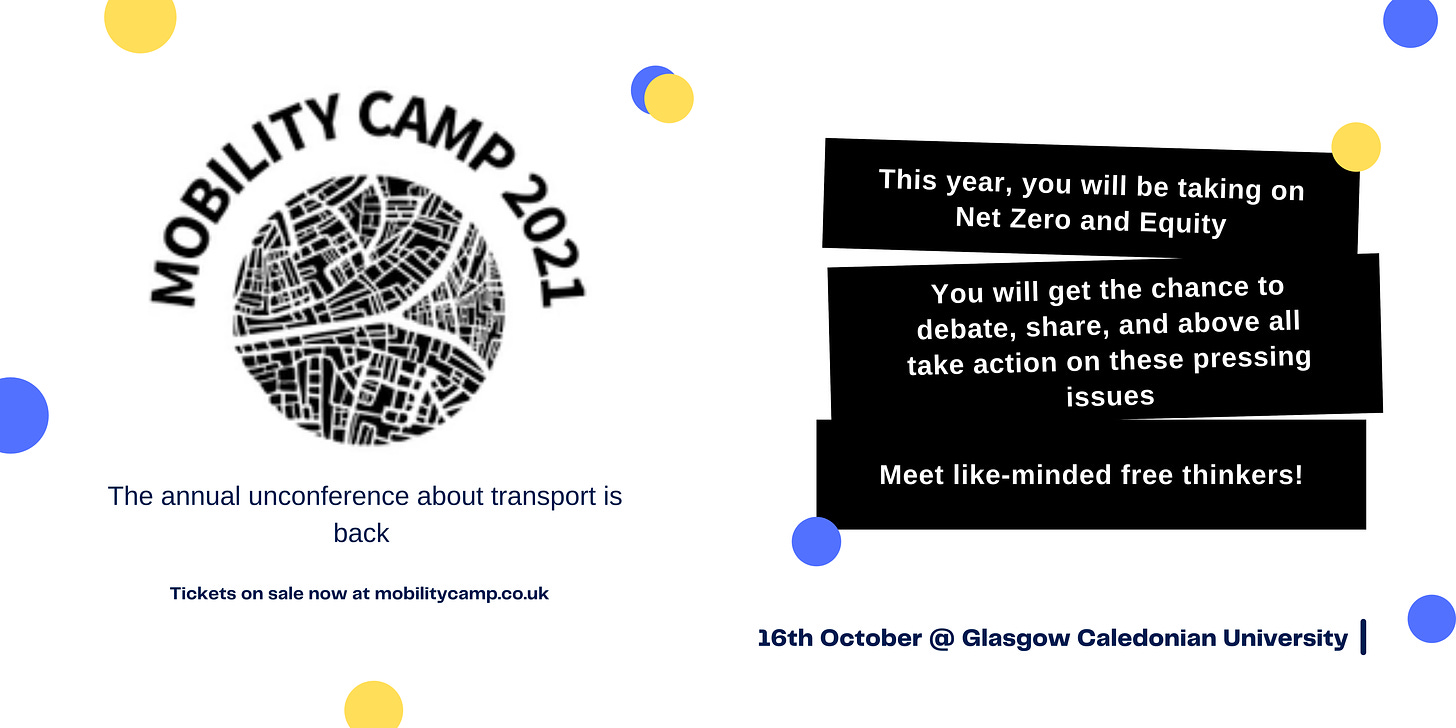
Mobility Matters Daily #171 - Peak car, online shopping, and Germany
I also published my first in-depth peice, so check it out.
Good day my good friend.
In case you had not picked it up yet, yesterday I posted my first in-depth weekly article. This one looked at the value of liberating structures when applied to transport planning. This is available to all subscribers, so go check it out.
Anyway, here are today’s curated links just for you.
James
Mobility Matters is changing. The free newsletter will remain, but you will be able to get more through a paid subscription. Find out more about the plans here.
Have we reached Peak Car?
Thank you to my good friend Sarah Barnes for pointing this story in my direction through her excellent weekly Along for the Ride newsletter. This article by Tom Standage has kicked that hornet’s nest again: Have we reached peak car? I’ll let you read the evidence he puts forward (it’s comprehensive), but my experience it depends how you define peak car.
Peak car constitutes two phenomenon that are only loosely connected. That is the total number of trips per vehicle or person, which has been decreasing, and the total number of trips and vehicles, which have been increasing slightly. The former represents choices more, whereas the latter represents wider changes more - notably changes in population. The fact that we have two conflicting points means that we have debates over peak car. I would argue that peak car means both trips per person/vehicle and total trips overall would be stable or decreasing. Is that a suitable definition? Let me know!
The built environment and online shopping
Can a city influence people’s attitudes towards online shopping? It’s a question that I had not considered before, and so seeing the results of a study by Shi et al1 of attitudes in Beijing certainly peaked my interest. To quote their analysis:
A Structural Equation Modeling analysis indicates that higher employment density, lower accessibility to metro stations, and lower street density have direct and positive effects on online buying of intangible services.
Or simply - the less accessible a place is, the more likely people are to be favourable towards online shopping. I don’t agree with their conclusion that land use planning is a potential measure to moderate travel demand for online shopping (correlation does not equal causation etc.). But their work shows that there may be something there for researchers to dig into, and for policy makers to consider.
Transport’s role in rebuilding a country
Yesterday, Germany celebrated Tag der Deutschen Einheit, or German Unity Day. Whilst the fall of the Berlin Wall took place some 11 months prior, on 3rd October 1990, East and West Germany formally passed into history. But the process of reunification still takes place today, with transport playing a key role in this.
The German Unity Transport Projects are still being constructed, such was the state of the infrastructure in East Germany at the time of unification, and the ‘issues’ these major projects have faced. These include the high speed line between Berlin and Nuremburg, and expanding the Leipzig-Dresden Railway. I recommend you read the work of Dieke Richards, who wrote an excellent paper on the role of these projects in setting the course for a new nation.

Random things
Here are some random things from across the internet that you may find interesting:
Wellington to get mass rapid transit routes to both the east and south (NZ Herald)
Evolving Impacts of the COVID-19 Pandemic on Micro, Small, and Medium-Sized Enterprises in Asia (Asian Development Bank)
Key factors for the implementation of Mobility as a Service in a Business-to-Business (B2B) context (MaaS Alliance)
African Cities Taking on Road Safety (City Fix)
Interesting things




I have seen a lot of visualisations of Census Travel to Work Data. But this is lovely.
If you do nothing else today, then do this…
Check out these city-building games recommended by Wired.
The abstract is free, but you may need to pay to access the article.










Hi James, thanks for the excellent work putting this blog together! Re peak car, I agree it's useful to separate individual-level behaviour change from changes in the population itself. However, for the individual-level part, I think the definition should focus on vehicle distance travelled per person (or vehicle), rather than trips per person / vehicle, so that changes in average trip length are also accounted for.